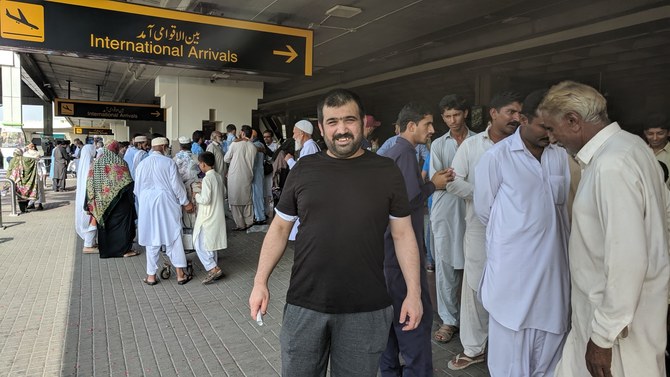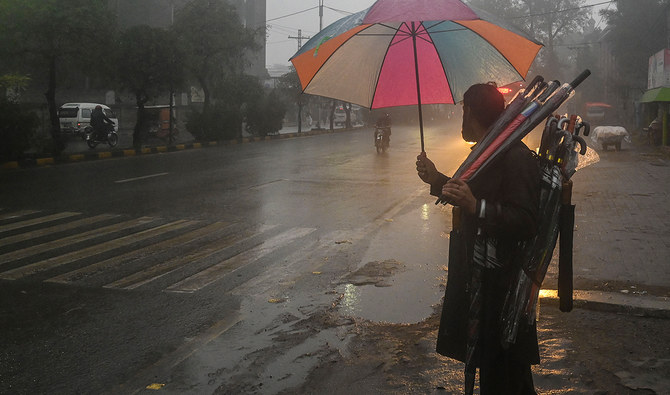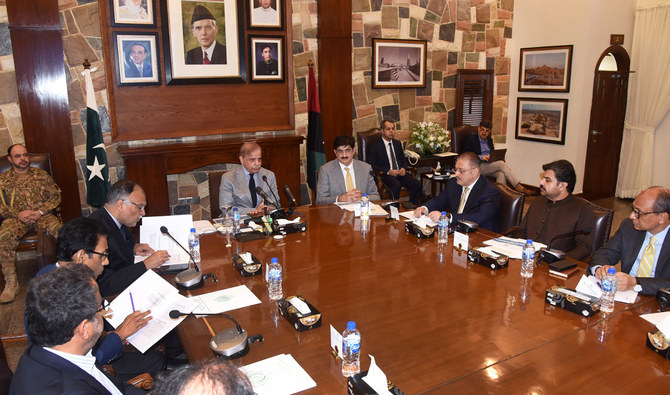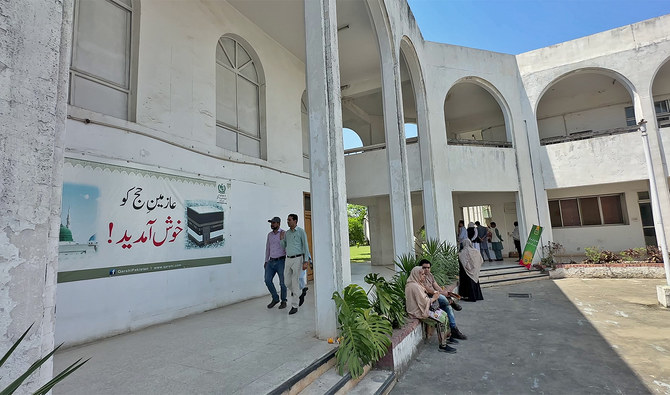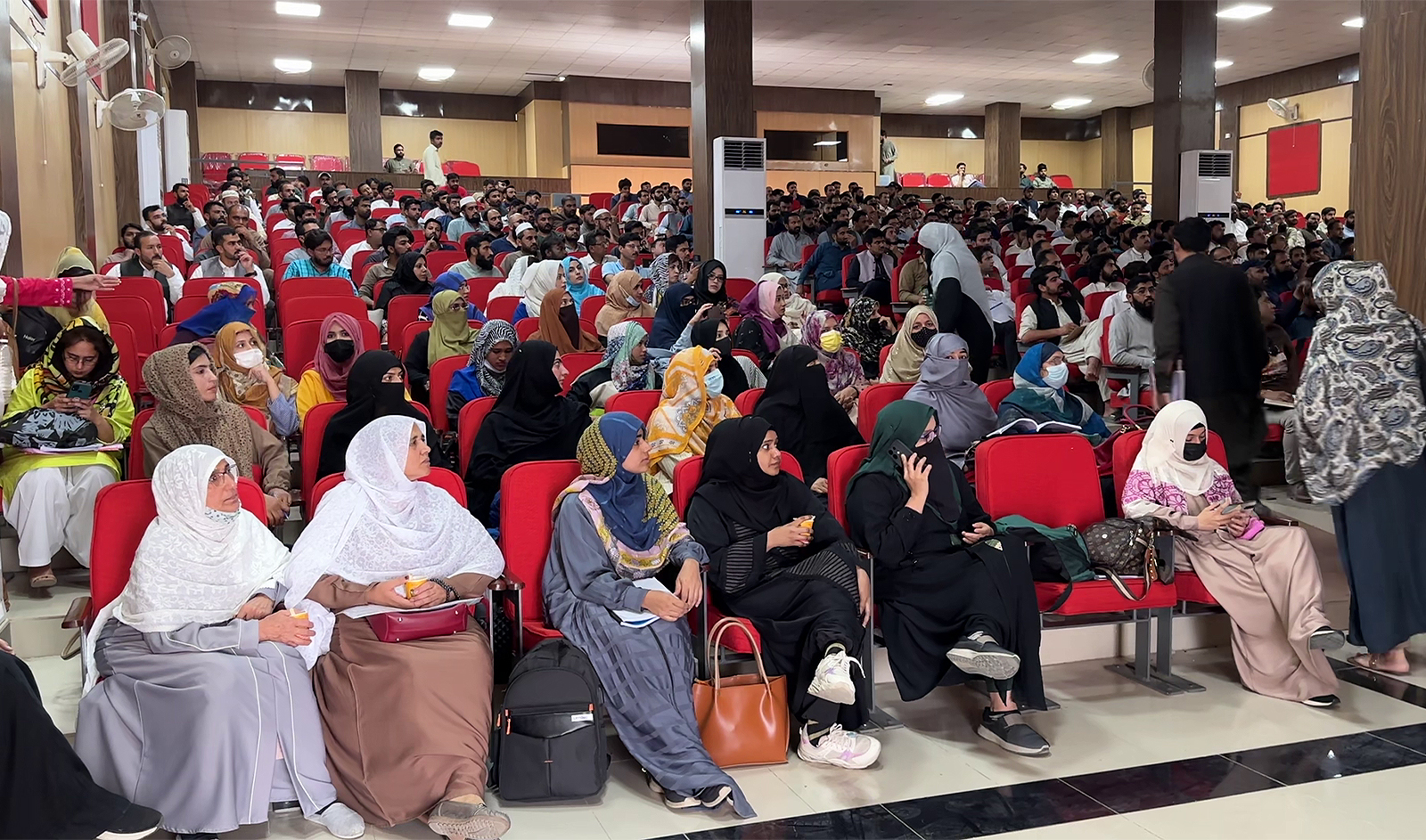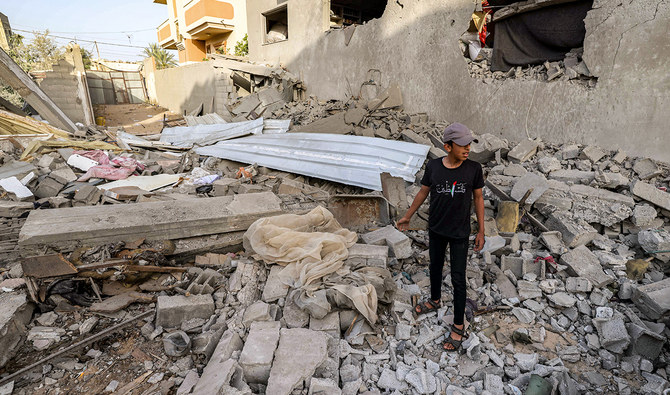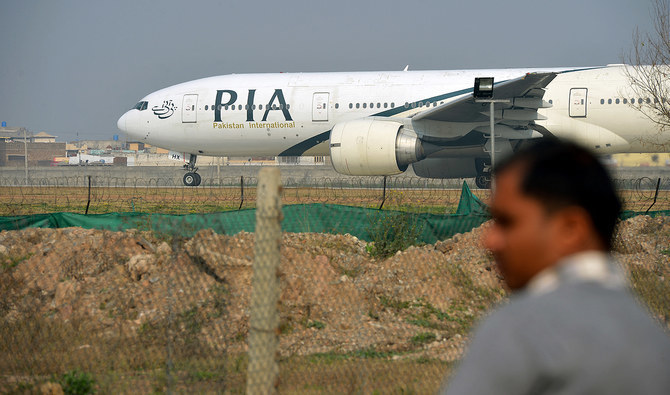KARACHI: Seven years after he was jailed for unintentionally killing four people in a 2013 road accident along a Makkah highway, Zahir Hussain Zar Khan, a truck driver, finally returned home to Pakistan on Monday after the Saudi bait-ul-maal social welfare organization paid his blood money last month.
Khan was received by his cousin Sarfraz Khan at Karachi’s Jinnah International Airport, following which he immediately connected with his family in Peshawar through a video call.
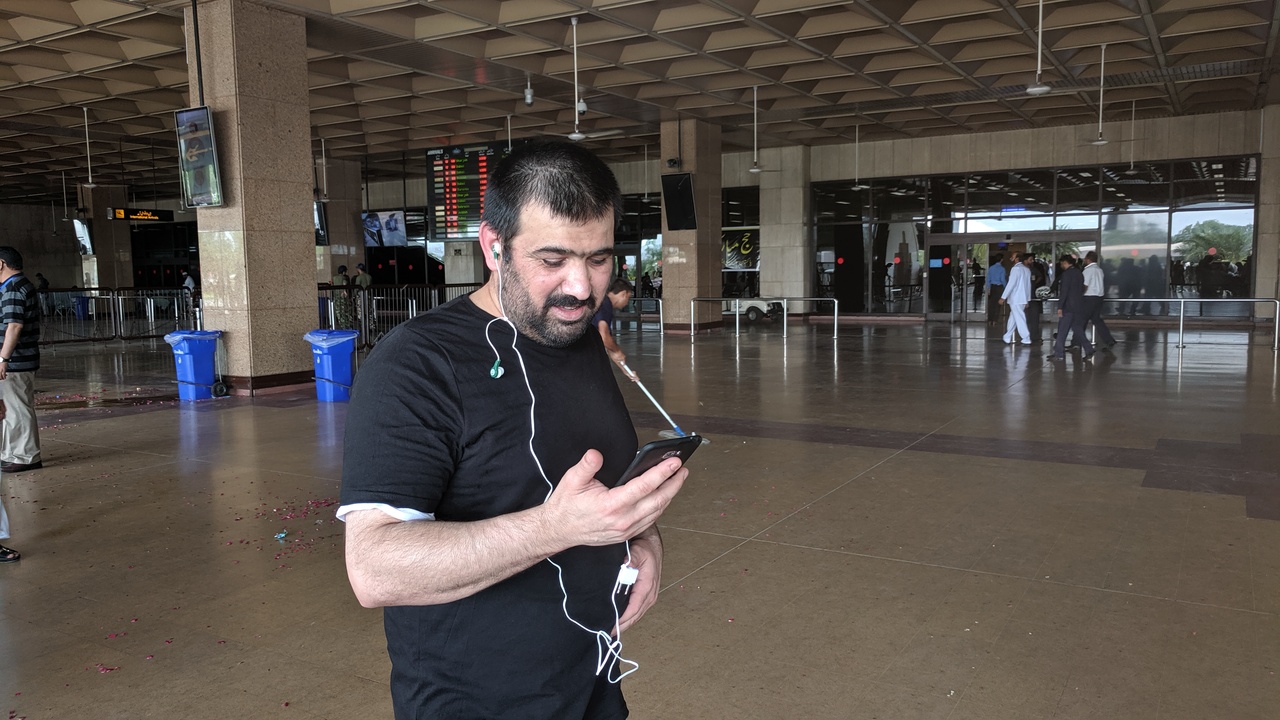
Zahir Hussain Zar Khan, a Pakistani trucker who arrived in Pakistan from Saudi Arabia on Monday morning after Saudi bait-ul-maal last month paid off his blood money to set him free, is smiling as he video chats with his family in Peshawar from Karachi’s Jinnah International Airport on August 26, 2019. (AN Photo)
The judge who had heard his case in Saudi Arabia had ordered Khan to pay SAR 1.3 million ($350,000) as blood money to the families of the deceased.
It was an unaffordable sum for the struggling truck driver who had left his family behind in Peshawar and moved to Saudi Arabia in search of a better life and employment opportunities.
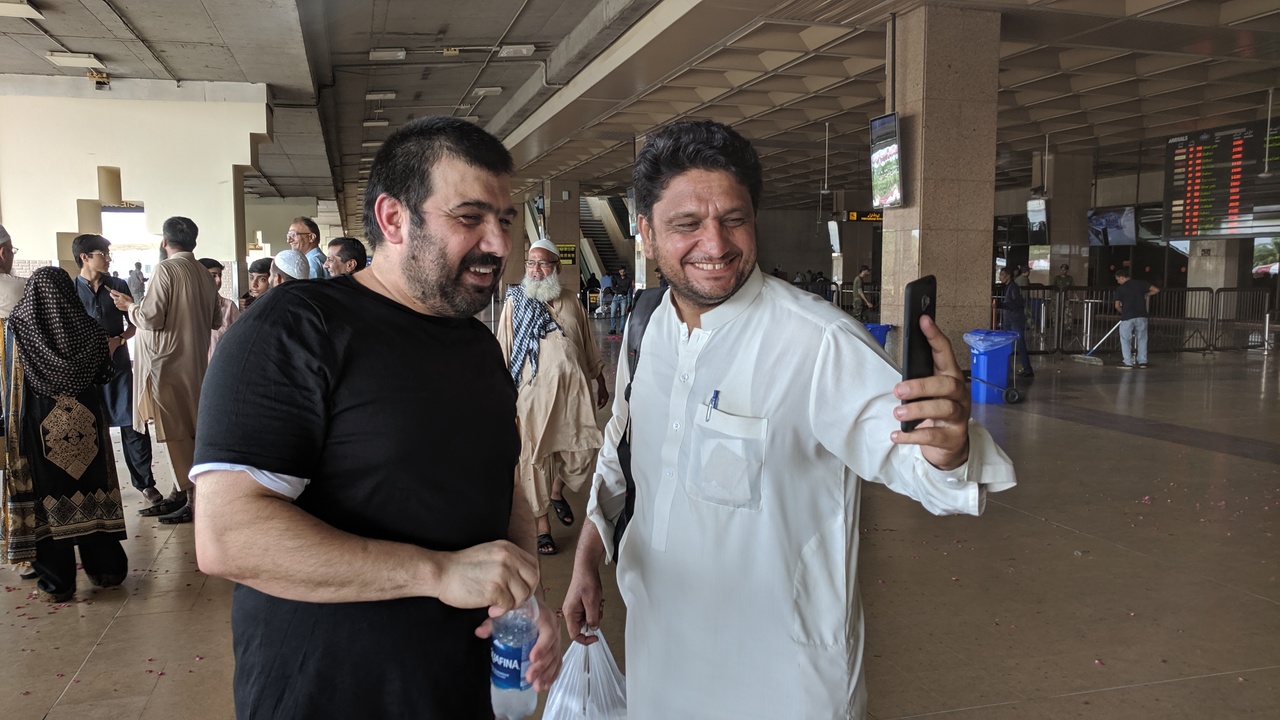
Zahir Hussain Zar Khan (Left), a Pakistani trucker who arrived in Pakistan from Saudi Arabia on Monday morning, is smiling as his cousin Sarfraz Khan (Right) connects him from Karachi’s Jinnah International Airport to his family in Peshawar on August 26, 2019. (AN Photo)
Khan was sent to a Makkah prison where he languished in jail for almost seven years until the bait-ul-maal paid off the bloody money which he owed to the accident victims.
“We appealed to the government of Pakistan and local news channels ran the news with a call for funds... but nothing happened,” His brother Hidayatullah told Arab News.
The family had lost all hope. However, six months ago, Hidayatullah said he was informed that they could seek help from the Saudi welfare organization.
“I cannot express my feelings in words,” he said, his voice choking with emotion. “I don’t know how to say thank you to King Salman for this generosity.”
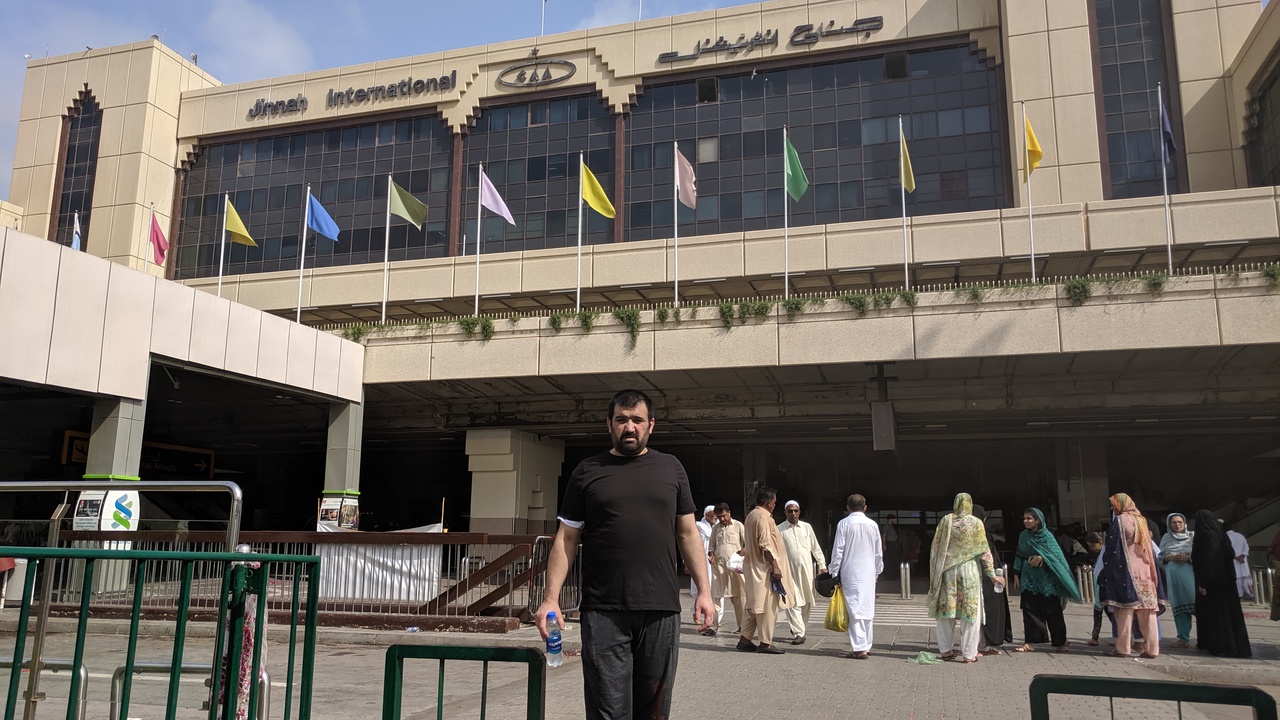
Zahir Hussain Zar Khan, a Pakistani trucker who arrived in Pakistan from Saudi Arabia on Monday, August 26, 2019, told Arab News he is thankful to Saudi King Salman for ordering to pay a blood money of 1.3 million SAR, the equivalent of almost $350,000, from bait-ul-maal to set him free of jail where he was languishing for last seven years. (AN Photo)
Khan was very excited when he spoke to Arab News on phone from Peshawar again on Monday, adding that a large number of people had gathered to greet his brother, with Zar Khan expected to fly for Peshawar on Tuesday morning.
“I want to fly to Peshawar on the next available flight to see you,” he had told his children on phone.
“Though years in jail were very painful. But finally I am free man, thanks to Saudi King Salman who ordered bait-ul-maal to pay the blood money,” Khan told Arab News at the Karachi airport.
“The segregation of nearly eight years, including seven in prison, is finally over. Tomorrow I will be meeting my children. I have missed them a lot,” he said.




